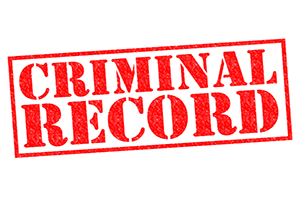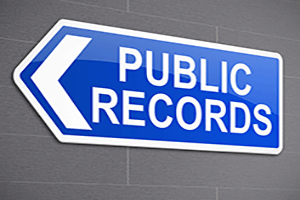
Dallas County Warrants TX
Warrants are serious legal matters that are court orders issued by a judge or magistrate. Both bench and arrest warrants are publicly available records that can be viewed by anyone with a simple online name search.


Dallas County court records offer a treasure trove of information. They provide a detailed account of criminal and civil legal proceedings within this large Texas community. These records are not just for legal professionals, journalists, researchers, students, and residents can also benefit from them. Dallas County, Texas, has various courts, where each judicial division handles specific types of cases. Understanding these courts and their jurisdictions can be instrumental in knowing where to look for specific case records. This guide will walk you through the process of looking up court case records, and provide you with an overview of the Dallas County Judicial System and the types of cases they handle.
The County of Dallas has a well organized and structured court system that ensures the orderly processing of various legal matters. The criminal courts in Dallas County deal with misdemeanor and serious felony offenses. While the civil courts address disputes between individuals, businesses and organizations. These cover issues such as contract disputes, lawsuits, and personal injury claims. Family law and probate courts have their specific focus areas. Family courts manage divorce, custody, and child support cases. Probate courts handle estates, wills, and guardianships. And finally the Justice of the Peace Courts, cater to smaller criminal and civil matters, that include small claims, evictions, and traffic violations. Each court serves a unique role, reflecting the diverse legal needs of the community.
Here is a breakdown of each of these divisions:
1). Criminal Courts: Handle misdemeanors and felonies. Criminal cases focus on those accused of breaking the law.
2). Civil Courts: Deal with civil disputes and non-criminal cases. Issues like contract breaches and property disputes fall here.
3). Family Law Courts: Focus on family-related issues. They tackle divorce, custody, and child support.
4). Probate Courts: Manage estates and guardianships. They include managing wills and handling estate disputes.
5). Justice of the Peace Courts: Handle small claims, traffic citations, and landlord tenant disputes.
Finding Dallas County court case records online is relatively straightforward using the county's Case Information Online System is your first stop. Navigate to the court records section. Select the appropriate court and case type for your needs. For example, you can choose to access civil cases or criminal cases. You can search by case number or the parties involved. Then once you've located the record you are looking for, you can request a certified or non-certified copy depending on your needs. Certified copies will cost extra.
If for some reason you cannot find what you are looking for on the County's Judicial website, you can contact the County Clerk's Office for assistance. The staff can guide you through the process and provide necessary forms. You can visit them in person, or call them directly @ 214-653-5767. It is also important to note that some records are restricted due to privacy concerns. Understanding these limitations will avoid unnecessary frustration.
Don't overlook the importance of detailed records. They can provide valuable insights into legal proceedings. Ensure all retrieved data is accurate and complete. For any issues, contact the court's support services. They can offer additional help and clarify policies. This ensures you have everything needed for a successful records search.
The Dallas County Case Information Online System is a valuable resource. It provides easy and swift access to court records. You can search for various types of cases from the comfort of your home, or anywhere on the go. Two key offices manage court records: the District Clerk and the County Clerk. The District Clerk oversees more serious criminal and civil cases. Meanwhile, the County Clerk handles minor criminal cases and civil matters.
Accessing court records sometimes involves fees. These fees vary depending on the type and volume of records requested. Payments are accepted online, in person, or via mail. Confidentiality is a vital consideration when accessing court records. Some records are restricted to protect privacy. Always check if specific cases have limited access before proceeding. Third-party websites also offer access to Dallas court records. While convenient, verify their reliability and accuracy. Only trusted sources should be used to ensure data integrity.
The Texas Public Information Act grants public access to court records. This act creates transparency and ensures there is accountability in the judicial system. However, some limitations may still apply to sensitive information such as sealed records. Sealing and expunging records affects their public availability and what people can view online. These legal processes can protect personal privacy and remove certain records from public view. It's important to understand the criteria and procedures involved.
The appellate process involves reviewing previous court decisions. Appeals records are often accessible to the public, providing insight into judicial decisions. These records are essential for understanding the nuances of case outcomes. Discrepancies in court records can occur due to clerical errors. It's important to report any errors you find in your search. Dallas County provides channels to correct these inaccuracies, maintaining the integrity of public records.
The Dallas County Law Library offers valuable online resources for accessing court records. It provides legal materials and research assistance to the public. This is especially useful for those conducting legal research or needing case information. Bilingual support is also available for non-English speakers seeking court case information, as there are diverse needs of its community. Multilingual resources ensure everyone can access essential information without language barriers.
Advocacy groups and non-profits play a significant role in promoting access to public records. They often assist individuals who might struggle with the legal system. Their support ensures equitable access to justice for all residents. For further assistance, Dallas County provides various contact options. The County's website includes directories for key offices and personnel. These contacts are essential for resolving specific queries related to court records.
Since the majority of court cases are considered public records, you have multiple options when looking up court records online. First, you can visit the Dallas County Judicial website and lookup court case records by name or case number. If you cannot find what you are looking for online, you can contact the Clerk of the Courts for assistance. A third option is to use a third party website that specializes in court records. These privately run website are great at quickly tracking down publicly available information online.
The majority of court cases are considered public record under Texas law. This means that anyone has the right to lookup a court case, unless it's sealed, without needing to ask permission. This creates transparency and accountability in the judicial system, which makes it easy for people to access information online.


Warrants are serious legal matters that are court orders issued by a judge or magistrate. Both bench and arrest warrants are publicly available records that can be viewed by anyone with a simple online name search.

Divorces, also known as Dissolution of Marriages, are considered public records in Texas that can be access through the District Court Clerk or various third party resources.

Criminal records include someone's misdemeanor and felony criminal convictions. These records can include their criminal court case, conviction records, sentencing records, incarcerations, and active warrants.

Public records encompass a multitude of various government collected information that are accessible by anyone. These can include criminal and civil records, vital records, driver records, tax liens and bankruptcies. They offer a comprehensive look at person and their interactions with society.
DISCLAIMER: CriminalRecords.us aims to offer convenient, affordable, and timely access to public records generated by government entities. CriminalRecords.us is an independent service and is not connected to or endorsed by any federal, state, or local government or agency. As we are not the original source of the information provided through CriminalRecords.us, we cannot guarantee the accuracy, completeness, or currency of the information. CriminalRecords.us is not a consumer reporting agency as defined by the Fair Credit Reporting Act (FCRA), 15 USC § 1681 et seq. The information provided on this site cannot be used to determine an individual's eligibility for personal credit, employment, tenant screening, or any other purposes defined under the FCRA. Misuse of information from CriminalRecords.us for purposes such as stalking or harassment may result in civil and criminal penalties. By using CriminalRecords.us, users agree to comply with our terms of service and privacy policy, and acknowledge that they will not use the information for any purposes governed by the FCRA.